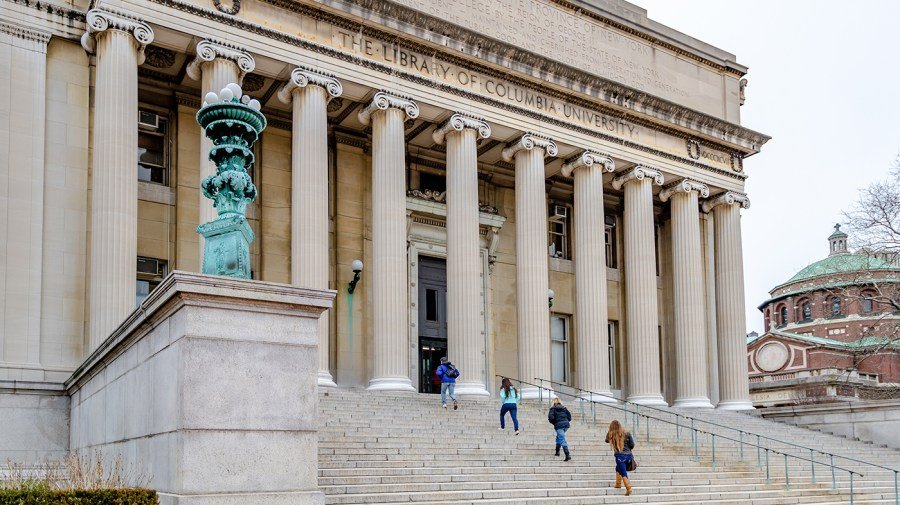
The Trump administration’s fights with Harvard and Columbia are eye-openers for other universities who are trying to decipher how to handle the president and his desire to exert control over their policies.
While President Trump promised to battle with higher education on the campaign trail, colleges were not expecting a full-fledged war with his administration seeking to destroy individual institutions.
Preparations are underway for financially tight situations, and strength-in-numbers approaches are under consideration as colleges glean lessons from Harvard’s resistance and Columbia’s compliance to Trump’s demands.
“I think the major lesson here is just to stand up […] use all the tools in the toolbox to really push back,” said Jared Bass, senior vice president for Education Policy at the Center for American Progress.
One obvious message to schools is that the Trump administration is not messing around.
Unprecedented steps have been taken, including Trump attempting to take away Harvard’s ability to admit foreign students and calling for Columbia to lose its accreditation, and with it all federal student aid.
Other universities have also seen what sorts of demands the Trump administration will make and what the expectations will be from the administration going forward.
In both the cases of Harvard and Columbia, the Trump administration called for changes regarding disciplinary policies. Separately, Trump wanted Harvard to get rid of all diversity, equity and inclusion programs and for Columbia to eliminate its University Judicial Board, among other things.
Seeing those fights ahead of time is “helpful in terms of them thinking through vulnerabilities, strengths,” said Rick Hess, senior fellow and the director of education policy studies at the American Enterprise Institute (AEI).
Hess added a number of higher education leaders and college presidents he has talked to said the Trump administration has “got a couple of reasonable points here. We went too far on this. We shouldn’t have done that, but what they’re doing to Harvard is too much.”
“What I keep saying to those leaders is be transparent about that, own it,” Hess said, adding the message schools should use is “we are going to use it as a chance to make sure we are holding our principles high, and we’re going to work with the Trump administration where they’re pointing out real problems, and we’re going to push back where we think they are they are overstepping.”
Columbia, which decided to work with the Trump administration, has still not seen the resumption of frozen federal funding but in fact has faced only further hits and investigations.
Harvard, which chose to fight, has seen at least one win in the court against Trump’s attempt to strip the university of its ability to take in foreign students and will have a hearing in July on a second lawsuit to stop the billions of dollars in funding pauses.
“We have court rulings protecting Harvard from this unlawful overreach from Trump administration, and that those sort of precedential rulings, small colleges can use those in their own defenses,” said Tyler Coward, lead counsel for government affairs at the Foundation for Individual Rights and Expression
While lawsuits will always be one option, experts say universities need to present strength in numbers and could lose if they let the Trump administration go after schools one by one.
Colleges already started to ban together with many showing support for Harvard’s lawsuit and dozens of higher education institutions, from community colleges to Ivy Leagues, signing a statement to denounce the Trump administrations actions.
“One key lesson, I think, for a lot of universities is people are seeing across the country is that faculty and students have to organize together. People have to build the coalitions that can pressure the administration,” said Chenjerai Kumanyika, a member of the governing council for the American Association of University Professors and faculty member at New York University.
In those coalitions, experts argue there needs to be support for institutions under Trump’s ire but also a message of what these funding cuts mean for everyday people.
“I’d say sort of ‘Stand Up’ campaigns that you’ve been seeing at certain schools, like Princeton, that’s been helpful. I think looking at what Harvard did on its web page, just highlighting the innovations that it’s produced because of the research dollars given by the federal government. I think that’s a really important story to tell,” said Bass.
Others argue schools need to look at how this came to be in the first place and why confidence in higher education is falling.
“The best defense against political scrutiny is a strong culture of open inquiry and viewpoint diversity. Universities should lead by example, not retreat under pressure. So, I think that’s a big lesson that doing the right thing on your campus, taking up those responsibilities in a serious way, being frank and honest about how one’s doing as a university is the best defense against political interference,” said John Tomasi, president of Heterdox Academy, a nonpartisan group of faculty focused on intellectual diversity on campuses.


